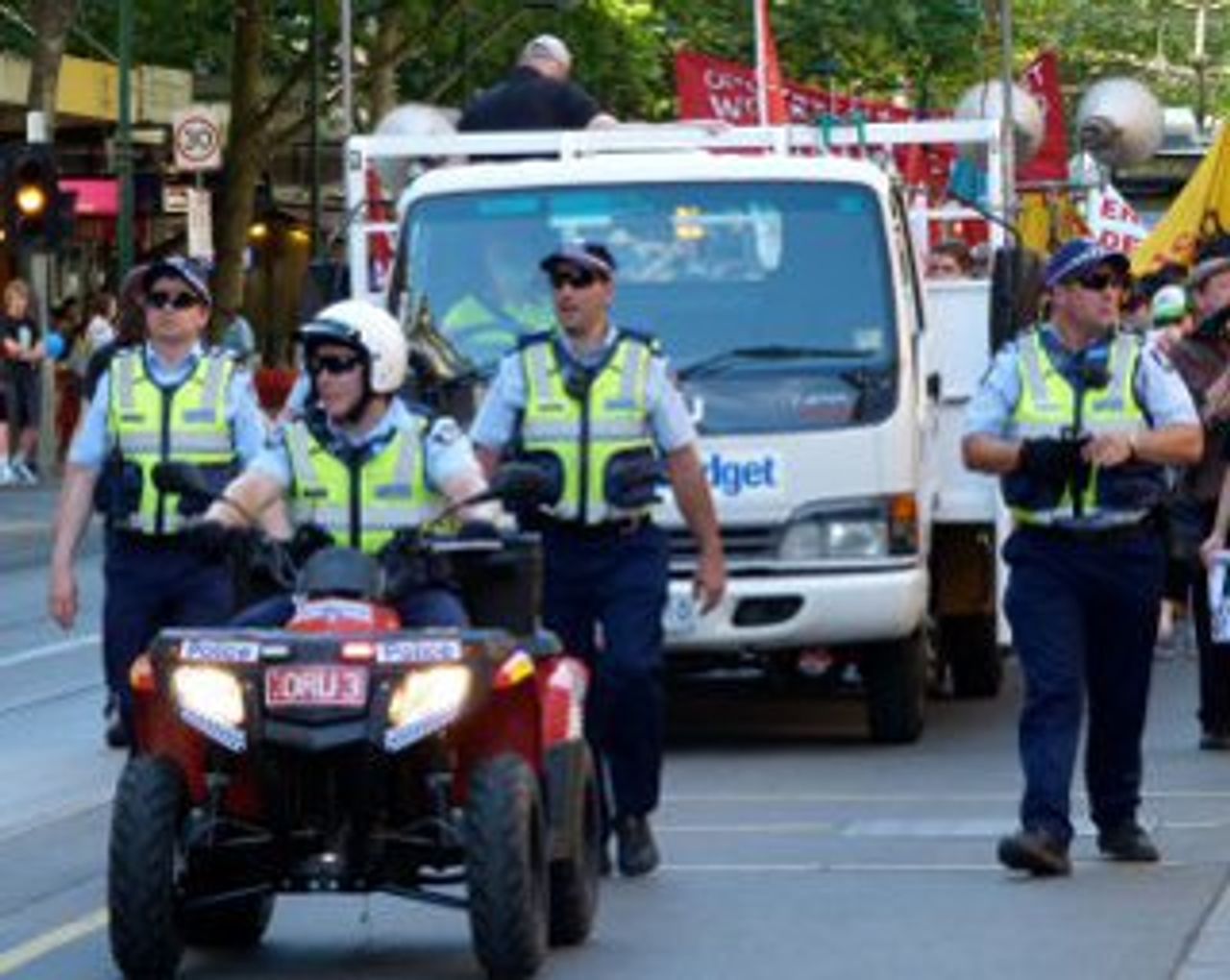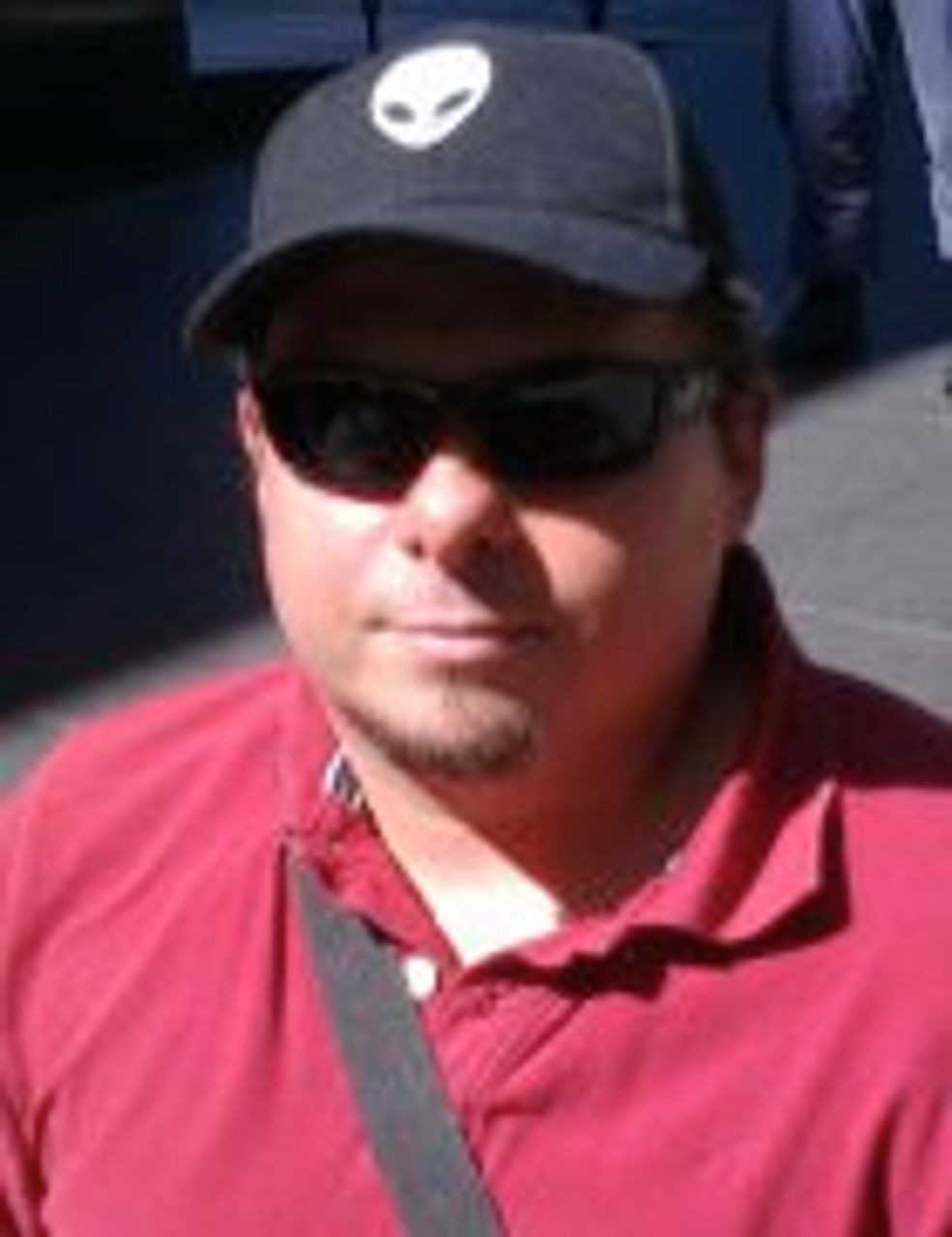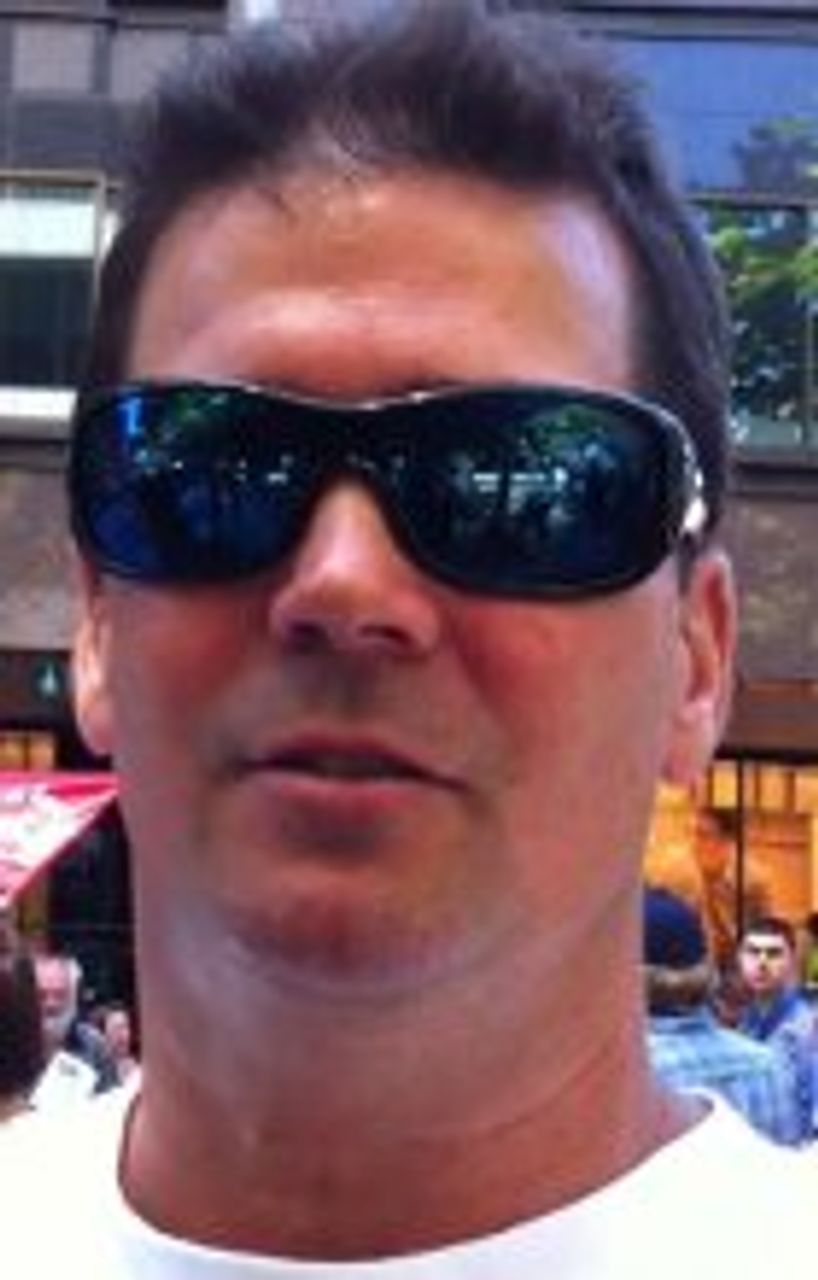Police arrests and intimidation continued in an apparent effort to shut down Occupy demonstrations over the past week in Sydney, Melbourne and Brisbane. About 1,200 people participated in the protests over the weekend as part of the international Occupy movement in opposition to social inequality and the domination of the financial elite.
In Sydney on Saturday, approximately 1,000 people attended a rally and march called to re-start the occupation. On October 23, police forcibly removed protesters from the initial site established in Martin Place, near the Reserve Bank of Australia.
In an attempt to block Saturday’s march, New South Wales police sought a Supreme Court order on Thursday on the pretext that it would disrupt a wedding and school concert. Protest organisers agreed to a deal with police that would allow demonstrators to march to Martin Place, but leave by 4.30 p.m.
Up to 30 police officers and four on horseback surrounded the rally, along with a two riot squad cars and a police bus. The show of force was a warning that police were preparing to make arrests. After over an hour of discussion, the 300 remaining protesters decided to move to nearby Hyde Park and resume their occupation. Early on Sunday morning, without warning, police forcibly removed 60 people who stayed the night, arresting six.
The police response, backed by the federal Labor government and the state Liberal government, again demonstrates the concern in ruling circles that the Occupy movement could trigger wider opposition in the working class amid deepening attacks on jobs and conditions.
 Police in Melbourne
Police in MelbourneIn Melbourne, about 150 people marched through the city centre, stopping outside several financial and corporate head offices. A general assembly was then held at City Square, the site of a violent police crackdown two weeks earlier. (See “Australian police attack Melbourne protest”) The numbers involved were considerably smaller than in previous weeks.
The police presence was disproportionate to the number of protesters. More than 50 police officers covered the borders of City Square. There was a police truck, several unmarked vans, eight police mounted on horseback, and at least five plainclothes police officers who stood within the assembly and filmed those present.
The drop in attendance resulted from the perspective advanced by the rally organisers. A week earlier, more than 1,000 people had marched to Treasury Gardens, where they were threatened and stopped from occupying by police. They then moved to Bowen Lane, where they were evicted by police, and a small number of people slept at the State Library. Throughout the entire day, the discussions at the general assembly focussed exclusively on logistical issues, avoiding any discussion of the political issues confronting the Occupy movement.
About 50 protesters have slept without tents at central Melbourne’s Treasury Gardens since Thursday. They were served an eviction notice on Friday by the City of Melbourne. The notice cited the “Activities local law 2009” which bans “portable advertising signs”—a reference to placards. The notice asserted that no one could camp in a public space in “any type of temporary or provisional form of accommodation”.
In Brisbane, police forcibly removed 100 protesters in the early hours of Wednesday morning. Approximately 20 relocated to Queens Park where they where they were again forced out, with police removing the demonstrators one at a time. Twelve were arrested.
The World Socialist Web Site spoke with demonstrators on Saturday in Sydney and Melbourne.
 Adrian
AdrianAdrian, who owns a small IT business, attended the Sydney rally. “The problems are far reaching, and global in nature,” he said. “It has to do with the capitalist system in general.”
Adrian was critical of the Occupy organisers and their “no politics” perspective. “The Occupy movement needs a better structure and to have a lot more to say to the people rather than chanting and screaming into the microphone and getting people enraged about things—people are already enraged. We need some real answers. I see inequality in all walks of life and I'm hoping there is someone I can support that is going to change that.
“How can you have a world without politics? The governments in power aren't working for average citizens. They are influenced by corporations. I would look back on history and see the real change has been where people have forced out their governments and taken control.”
Deborah said she thought the Occupy movement was important because she was “pretty powerless in just about every other respect, apart from signing petitions. We have let the financial system dictate everything. The finance industry has everybody under control.”
 Cal
CalCal, 46, has been a stevedore for 15 years. “I came here to protest against what I see is the reintroduction of ‘greed is good,’ which led us all to the GFC (Global Financial Crisis),” he said.
“Our company has been sold to an infrastructure private equity firm and now they are saying we have to take anything from a $10,000 to $15,000 a year pay cut, and they only want to give us a CPI [consumer price index] pay rise, which means you don’t know from one year to the next what you are going to get.”
Luke, 21, a journalism student at Macleay College, was also dissatisfied with the politics of the Sydney protest. He commented: “We need to sit down and have a difficult conversation about what the main issue is, what the main goal is.”
Ollie, 23, who is studying printmaking at the National Art School, said the main issue the Occupy movement was facing was “the huge power structures that separate people into individual units instead of a mass of people”. He continued: “People become powerless through the structures that exist because of that difference between the 99 percent and 1 percent, which has to do with unequal distribution of power and therefore of wealth.”
In Melbourne, Christian, a student of creative writing at RMIT University, said: “I’ve been involved in the Occupy protest since the beginning, and I’ve learnt a lot by participating in it. I thought the police attack to evict us from the City Square was horrible. It was disgraceful and very political.”
